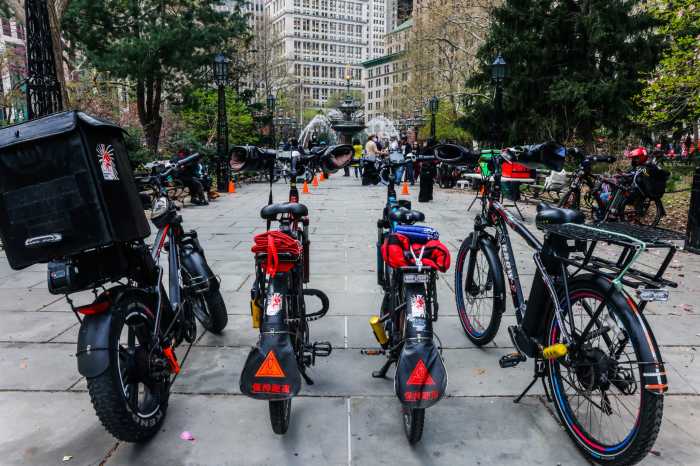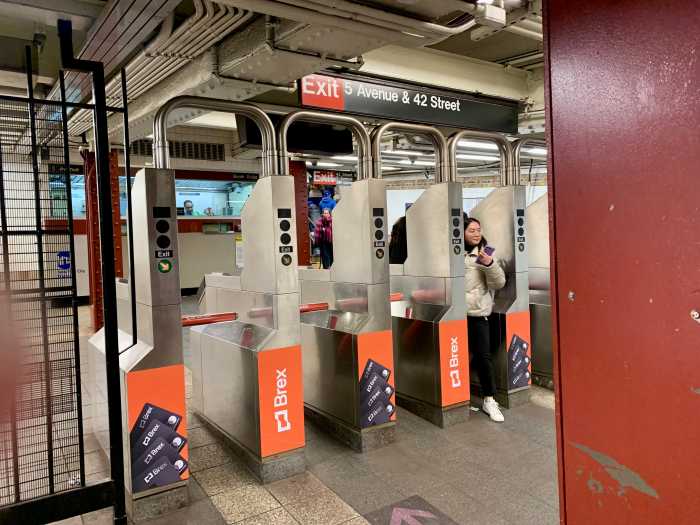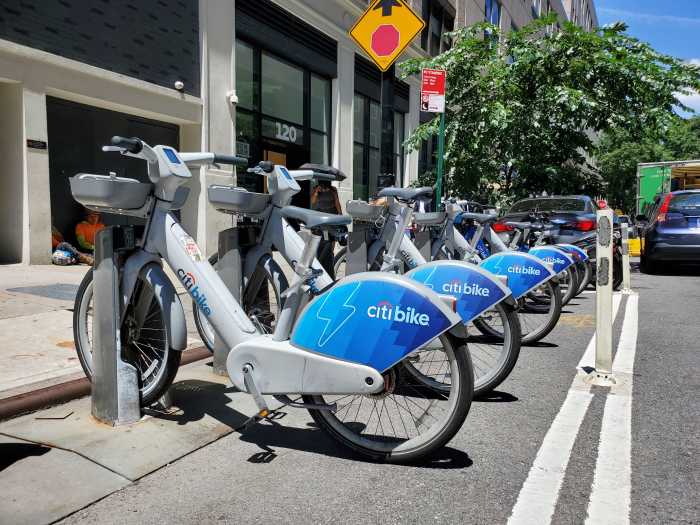
An MTA board member told a colleague that there is "blood on your hands" during a heated exchange over payroll expenses and worker overtime.
The transit authority’s board meeting on Friday was scheduled at the last minute to discuss a new report on MTA timekeeping failures and its nascent reorganization plan. But it devolved into a shouting match between the two members, who have been feuding for months: John Samuelsen, the international president of the Transport Workers Union, and Larry Schwartz, the board finance committee chair.
Samuelsen and TWU Local 100 have argued that the board — Schwartz specifically — has unfairly and without concrete evidence accused workers of defrauding the MTA through increasing overtime expenses highlighted in a report from Empire Center that found several workers racked in significant amounts of extra pay.
“The great irony of all this is … the chairman of the finance [committee] who’s been here for four years, looking at all these overtime reports — week-in, week-out, month-in month-out — didn’t do a damn thing about it until the Empire Center report came out,” said Samuelsen, referencing Schwartz. “And then he ran scared and ran to the media and blamed the workers.”

The timekeeping review, commissioned by the authority and released Thursday, found that the MTA has been failing for more than a decade to maintain adequate payroll and overtime systems — failing badly enough to make it vulnerable to worker fraud and abuse. However, the report did not draw any conclusions as to whether workers abused the system.
Overtime expenses increased at nearly every MTA agency last year, accounting for 15% of its payroll budget. Better management of timekeeping will be key as the MTA plans to reorganize and cut costs while facing a billion-dollar budget gap by 2022, MTA officials said.
Samuelsen called out Schwartz by name, saying the finance chair during a CBS appearance was “ranting and raving in an inappropriate and hyperbolic manner” against workers.
“That’s not true, John,” Schwartz said. “Read the transcript and watch the segment.”
Schwartz during the television segment said, “People need to either go to jail, they need to be prosecuted, and we need to collect the money that they stole from the taxpaying public.”
“Don’t interrupt me!” Samuelsen shouted over him.
“The appearance that there are problems with overtime were triggered by you,” Samuelsen said. “It’s at your feet. And you know what, there’s blood on your hands because transit workers were assaulted in the aftermath of your accusations.”
Fellow board member Linda Lacewell urged Chairman Pat Foye to intervene, “Can we have decorum here, chair? You should not permit this to go on.”
“You can be critical of me, John. You just have to tell the truth,” Schwartz added.

“I’ve got to tell the truth? The whole room is laughing at that comment,” Samuelsen said.
Friday’s exchange was not the first time the two sparred. Schwartz and Samuelsen almost came to blows during a recent closed-door executive session, according to several people in attendance.
‘Abuse of public trust’
The board managed to agree that the MTA’s timekeeping system needed an overhaul, as recommended in the report. Lacewell described the system as an embarrassment that is a “gross abuse of public trust.”
The board was limited in its questioning of the report, crafted by former federal prosecutor Carrie Cohen, because members had not been given advance copies before the meeting, according to board member Neal Zuckerman. But even Cohen’s answers were restricted.
She could not say how much a timekeeping overhaul would save the agency because the MTA’s system was so lacking that it could not determine what would be considered a proper amount of overtime.
Even with an overhaul and an agency reorganization, which could cut that billion-dollar deficit in half, finding the additional savings to claw out of the red will be a challenge, warned Zuckerman.
“The issue at the table is where we’re going to get the money,” he said, “because this region demands a solvent and functioning MTA, financially.”


























